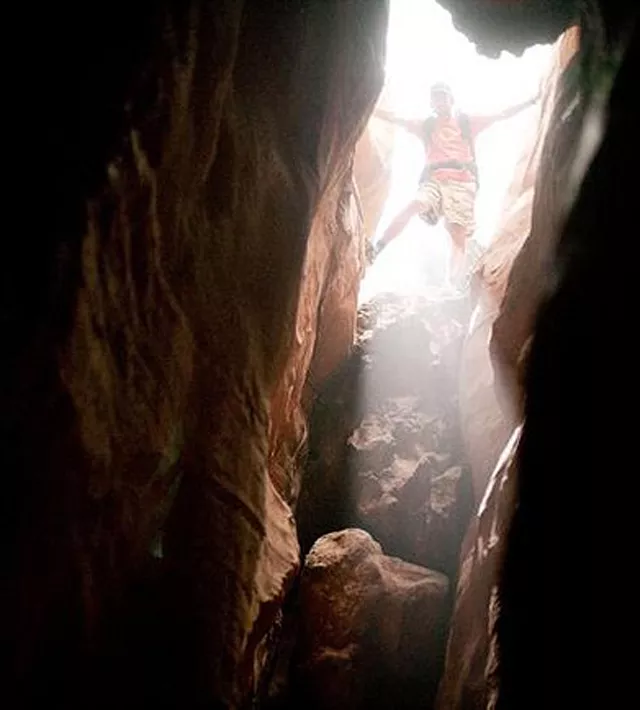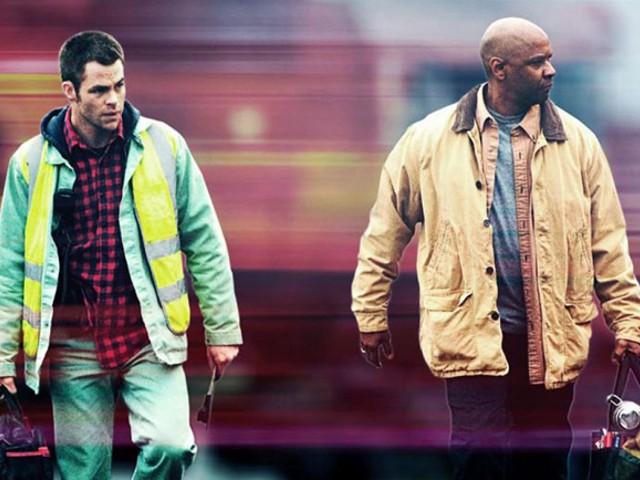127 Hours
GRADE: B+
Oh, don't be such a pussy. It's not that bad. The act of James Franco sawing off his own arm amounts to roughly 10 minutes of screen time at best (for those of you who are clueless — sorry about the spoiler). It's a harrowing 10 minutes to be sure, and, yeah, you'll wince and squirm but it's only a small part of this trim and highly entertaining movie.
Director Danny Boyle (Slumdog Millionaire) is in total command of his medium here, showing us how a movie about a guy pinned by a rock in a small cramped canyon can be turned into 90 minutes of highly charged, emotionally uplifting drama.
Back in 2003, 27-year-old Aron Ralston (James Franco) hiked into Utah's Blue John canyon alone, without telling anyone where he was going. An independent and charming daredevil who kept people at arm's length, his overconfidence soon landed him in trouble. While squeezing through a narrow gulley at the bottom of the canyon, he slipped, fell and got his right hand crushed and trapped by a large boulder. For the next five days, this bright and bold young man struggled to dislodge himself and keep his sanity. Recording a video diary on his digital camera, rationing his single bottle of water, and fighting hallucinations, a very lonely death seemed imminent. But survival instincts being what they are, Ralston eventually decided to do the unthinkable: saw off his arm with a cheap multi-tool and hike back out of the canyon.
Though the beginning and ending of this true-life tale are well-known (Ralston wrote a popular book about his ordeal), Boyle is able to fill in what happened in between; in the process, he and his co-screenwriter Simon Beaufoy have fashioned a film not about a man wrestling with his impending death but rather about Ralston's indomitable spirit to live. This is not new terrain for Boyle. Though his films often cross into pitch-black subject matter, he's a director who rarely indulges in nihilism. Whether it's Slumdog Millionaire, 28 Days Later or Trainspotting, his movies tend to be life-affirming, a triumph of pluck and piss over certain defeat.
Franco captures these traits with charisma and authenticity, turning his one-man show into a tour de forceexpression of a quintessentially American middle-class personality. Sweet, arrogant, clownish and smart, he conveys the fear, resentment and, ultimately, introspection Ralston goes through as he faces his own absurd demise.
Unfortunately, what makes 127 Hours so engaging also undermines some of its power. Tricking out the middle act of his film with flamboyant camerawork, impressionistic flashbacks and bullet-fast montages, Boyle comes damn close to drowning his story in adrenalized flourishes. The throbbing music and hallucinatory memories have an undeniably visceral impact, pulling the audience into Ralston's surreal situation. Still, the film could use a few more moments of calm, instances where we feel the terrifying silence and dread-filled emptiness of those lonely hours where death seems all too possible. Boyle comes close in a scene in which Ralston waits in the dank shadows for a brief touch of sunshine. It's a too-rare instance of connection in a film that has a tendency to emulate its protagonist's preference for personal detachment.
Which is ironic, given the film's simple but well-timed message: other people matter. With the selfish, free-market, every-man-for-himself wave that is currently consuming our political discourse, 127 Hours passionately reminds us of the potential perils of the go-it-alone mindset. Free expression, solitude and a strong survival instinct are important facets of the human condition, but so are the connections we make with other human beings — the aid and comfort we provide, the love we share. In the end, Aron Ralston didn't just learn that he should leave word of where he's going, but rather that the people in his life, whether it's a family member or a stranger with a canteen and cell phone — are the things that both keep us alive and make life worth living.
Showing at the Birmingham 8 (211 S. Old Woodward Ave., Birmingham; 248-644-3456).





